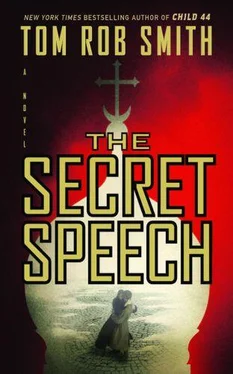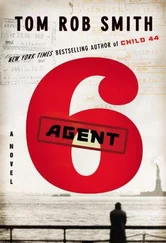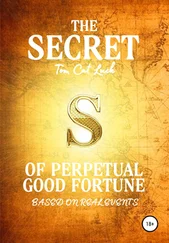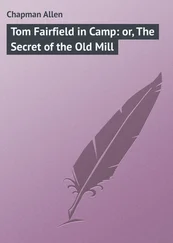Tom Smith - The Secret Speech
Здесь есть возможность читать онлайн «Tom Smith - The Secret Speech» весь текст электронной книги совершенно бесплатно (целиком полную версию без сокращений). В некоторых случаях можно слушать аудио, скачать через торрент в формате fb2 и присутствует краткое содержание. Жанр: Триллер, на английском языке. Описание произведения, (предисловие) а так же отзывы посетителей доступны на портале библиотеки ЛибКат.
- Название:The Secret Speech
- Автор:
- Жанр:
- Год:неизвестен
- ISBN:нет данных
- Рейтинг книги:5 / 5. Голосов: 1
-
Избранное:Добавить в избранное
- Отзывы:
-
Ваша оценка:
- 100
- 1
- 2
- 3
- 4
- 5
The Secret Speech: краткое содержание, описание и аннотация
Предлагаем к чтению аннотацию, описание, краткое содержание или предисловие (зависит от того, что написал сам автор книги «The Secret Speech»). Если вы не нашли необходимую информацию о книге — напишите в комментариях, мы постараемся отыскать её.
The Secret Speech — читать онлайн бесплатно полную книгу (весь текст) целиком
Ниже представлен текст книги, разбитый по страницам. Система сохранения места последней прочитанной страницы, позволяет с удобством читать онлайн бесплатно книгу «The Secret Speech», без необходимости каждый раз заново искать на чём Вы остановились. Поставьте закладку, и сможете в любой момент перейти на страницу, на которой закончили чтение.
Интервал:
Закладка:
Her
Even now, with all the pieces in place, he struggled to articulate the only logical conclusion: the person holding the knife had been Zoya.
He stood up, walking to the window and throwing it open. Cold air rushed over his face. He wasn’t sure how long he remained in this position, staring out at the night sky, but hearing a noise behind him he remembered that he was not alone. He turned around, about to apologize. He swallowed his words. Nikolai, a man who’d taught him that cruelty was necessary and good, was crying.
— Leo? You’re not even listening.
Tears still on his cheeks, Nikolai started to laugh, a noise that took Leo back to their obligatory post-arrest drinking celebrations. Tonight Nikolai’s laughter was different. It was brittle. The swagger and confidence were gone.
— Y ou want to forget? Don’t you, Leo? I don’t blame you. I would pay anything to forget it all. What a wonderful dream that would be…
— I’m sorry, Nikolai; my mind is elsewhere, a family matter.
— You took my advice… A family, that’s good. Families are important. A man is nothing without the love of his family.
— Can we talk tomorrow? When we’re less tired?
Nikolai nodded and stood up. At the door he paused, looking down at the floor:
— I am… ashamed.
— Think nothing of it. We all drink too much from time to time. We’ll talk tomorrow.
Nikolai stared at him. Leo thought he was going to laugh again, but this time he turned around, heading toward the stairs.
Leo was thankful to be alone and able to concentrate. He couldn’t pretend any longer. He was an ever-present reminder of Zoya’s terrible loss. He’d never spoken about what happened that day, when her parents had been shot. He’d tried to brush the past aside. The knife was a cry for help. He had to act to save his family. He could fix this. Talking to Zoya: that was the solution. He had to talk to her right now.
SAME DAY
NIKOLAI STEPPED OUTSIDE, HIS BOOTS sinking into the thin snow. Feeling the chill on his exposed stomach, he tucked his shirt into his trousers — his eyes barely able to focus, his body swaying as though he were on the deck of a boat. Why had he phoned Leo? What had he expected his former protégé to do? Perhaps he’d just come for companionship, not just any companionship such as a fellow drunk; he’d come for the company of a man who shared his shame, a man who couldn’t pass judgment without also passing that same judgment on himself.
I am ashamed.
Those were words that Leo should have understood better than anyone. Mutual shame should have brought them together and made them brothers. Leo should’ve put his arms around him and said: Me too. Had he forgotten their history so easily? No, they merely had different techniques for dealing with it. Leo had embarked on a new and noble career, scrubbing his bloody hands in a basin of warm, soapy respectability. Nikolai’s technique had been to drink until he blacked out, not for the thrill but as an attack on his memory.
Someone wouldn’t allow him to forget, sending him photographs of men and women taken against a white wall, cropped so that they were just a face. At first he hadn’t recognized the subjects although he’d realized that they were arrest photographs, the kind required by any prison bureaucracy. They arrived in batches, once a week, then once a day, every day, an envelope left at his home. Going through them he’d begun to remember names, conversations — tattered memories, a crude collage with one citizen’s arrest spliced with another’s interrogation and another’s execution. As the photographs accumulated, holding them heaped in his hands, he questioned if he’d arrested so many. In truth, he knew, he’d arrested far more.
Nikolai wanted to confess, to ask for forgiveness. But no demands were sent, no requests for an apology, no instructions on how to repent. The first envelope had been marked with his name. His wife had brought it to him. He’d opened it casually in front of her. When she’d asked what it contained he’d lied, hiding the photos. From then on, he’d been forced to open them in secret. Even after twenty years of marriage his wife didn’t know about his work. She knew he’d been a State Security officer. But she knew little more. Perhaps she was being willfully ignorant. He didn’t care whether it was willful or not, he cherished her ignorance — he depended upon it. When he looked into her eyes he saw unqualified love. If she knew, if she’d seen the faces of the people he’d arrested, if she’d seen their faces after two days of questioning, there would be fear in her eyes. The same was true for his daughters. They laughed and joked with him. They loved him and he loved them. He was a good father, attentive and patient, never raising his voice, never drinking at home — a home where he remained a good man.
Someone wanted to steal this from him. Within the last couple of days the envelopes were no longer marked with his name. Anyone could have opened them: his wife, his daughters. Nikolai had become afraid to go out in case something should arrive in his absence. He’d made his family swear to bring to him any package or letter whether it was marked with a name or not. Yesterday he’d gone into his daughters’ room to find an unmarked letter on their bedside table. He’d lost his temper, wild with anger, furiously asking if the girls had opened it. They’d cried, confused by the sudden transformation, assuring him they’d put it on the table for safekeeping. He’d seen fear in their eyes. It had broken his heart. It had been the moment he’d decided to seek Leo’s help. The State must catch these criminals that were senselessly persecuting him. He’d given many years of service to his country. He was a patriot. He’d earned the right to live in peace. Leo could help: he had an investigative team at his disposal. It would be in their mutual interests to hunt down these counterrevolutionaries. It would be just like old times. Except Leo hadn’t wanted to know.
The early morning workers were already arriving at the bakery. They stopped, staring at Nikolai in the doorway. He snarled:
— What?
They said nothing, remaining huddled, some meters away, not passing him.
— You judge me?
Their faces were blank, men and women waiting to bake the city’s bread. He had to get home, to the one place, the only place where he was loved and where his past meant nothing.
Living nearby, he staggered through the deserted streets, hoping that in his absence another package of photographs hadn’t arrived. He stopped walking: his breathing was shallow and heavy, like an old, unhealthy dog. There was something else, another noise. He turned around, looking behind him. Footsteps — he was sure of it, the tap, tap of hard heels on stone pavements. He was being followed. He lurched toward the shadows, searching for outlines, straining his eyes. They were after him, his enemies, stalking him: hunting him as he had once hunted them.
He was running now, home, as fast as he could. He stumbled before regaining his balance, his coat flapping about his ankles. Changing tack, he spun around. He’d catch them at this game. He knew these tricks. They were his tricks. They were using his methods against him. Staring at the dark corners, the murky enclaves, the hiding places where he’d trained MGB recruits to move between in, he called out:
— I know you’re there.
His voice echoed down the seemingly empty street. Empty to a layman, but he was an expert in such matters. His defiance was brief, melting away:
— I have children, two daughters. They love me! They don’t deserve this. You hurt me and you hurt them.
Читать дальшеИнтервал:
Закладка:
Похожие книги на «The Secret Speech»
Представляем Вашему вниманию похожие книги на «The Secret Speech» списком для выбора. Мы отобрали схожую по названию и смыслу литературу в надежде предоставить читателям больше вариантов отыскать новые, интересные, ещё непрочитанные произведения.
Обсуждение, отзывы о книге «The Secret Speech» и просто собственные мнения читателей. Оставьте ваши комментарии, напишите, что Вы думаете о произведении, его смысле или главных героях. Укажите что конкретно понравилось, а что нет, и почему Вы так считаете.












